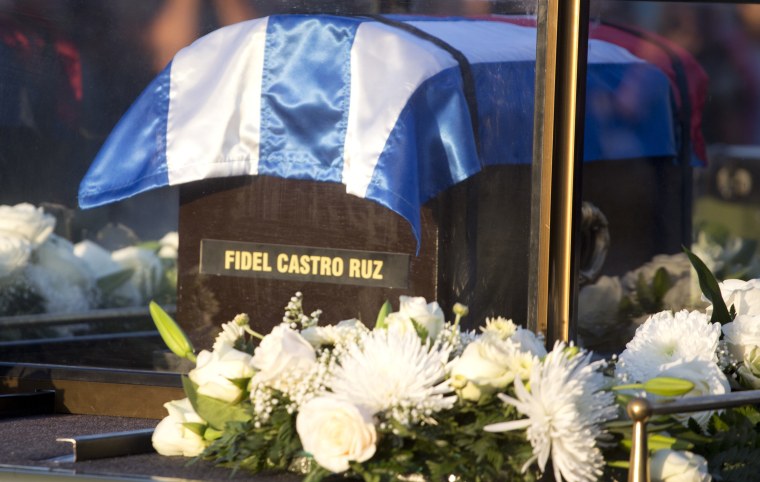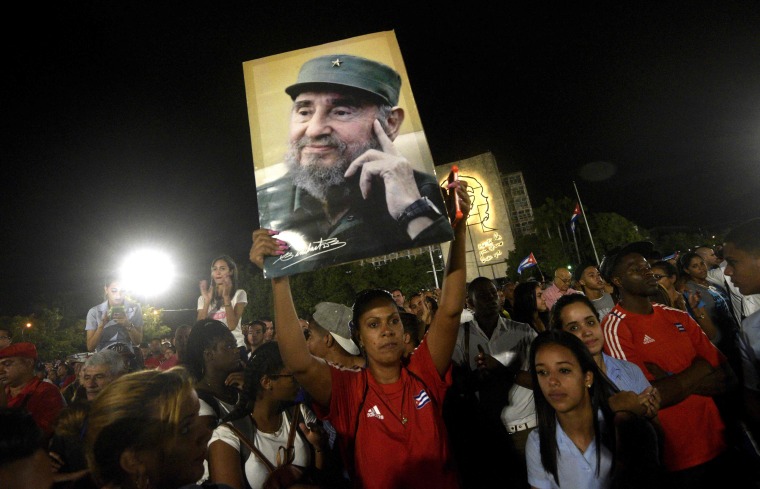MIAMI — I don’t mean to ruin the party. By all means, keep uncorking the wine, toasting to freedom and banging pots on Calle Ocho. I just want to offer an alternative reality, one in which Fidel Castro isn’t the center of the universe.
It is possible to be Cuban, even a Cuban exile and not be Castro-obsessed. Yes, it is true that most of us wouldn’t be in exile if it weren’t for him. (I never heard anyone claiming they had left Cuba because of Raúl, the current president of Cuba and Fidel’s younger brother). On the other hand, once we’ve left the island, some of us decided not to give Fidel another second of our time or another inch of our mental space.
RELATED: Op-ed: In the U.S., We Rebuilt What Fidel Destroyed
Growing up, Fidel loomed large in my life and in the life of most Cubans of the generation born shortly after he assumed power in 1959. Because we knew nothing else, because we were taught only one reality, Fidel came to embody not only the ideas of the revolution but also the nation itself. He was the mambí (those who fought for independence against Spain) and the bearded revolutionary; he was the national anthem and the flag, the mountains and the sea.
All powerful, all seeing, he came to replace God at a time when the government declared the country atheist. Who needs God in the face of such powerful force?
To reject him, to stand against everything he stood for was to be disloyal not only to him but to la patria –the motherland.

It is no coincidence that the government adopted words to demean those who wanted a different life. In revolutionary Cuba, people didn’t just leave the island, they “abandoned the motherland.” At first and for a long time they were called gusanos, or worms. Later, when my time came to leave, we were called escoria, or scum.
I left in a boatlift that brought more than 125,000 Cubans from the port of Mariel, in northern Cuba, to South Florida 36 years ago. On a wall in my home office I keep the departure order the government issued to the Mañana, the boat that carried me and my family to the US. Under the category of shipment, someone at the port wrote the word “lastre” or ballast.
RELATED: Opinion: A Nuyorican View of Fidel Castro's Legacy
Inside the revolution, all was possible; outside, nothing, Fidel once famously said — and he meant it.
To step aside was called “diversionismo ideológico” an ideological betrayal of the highest order. And so he controlled what music we listened to, what books we read, what uniforms we wore, the length of men’s hair, whether or not we communicated with our cousins in the U.S. (the euphemism for the US then was el exterior as if all that was ours and all that was good stood in juxtaposition to everything that happened outside that island, outside our revolutionary bubble).
Eventually the bubble burst, but it took a long time. The damage was done.
By then, I had already left my country and began the treacherous path of exile, where I was expected to think for myself and make choices, wise choices. Upon arrival I was told I could forget my name and my past; I was beginning a new life and could choose a different name.
RELATED: Opinion: Children of Exile Won't Forget Fidel
I decided to keep both my name and my memories, but I also decided to leave Fidel behind, where he belonged, in the bubble he created and that so many –here and there- continue to cling to.
RELATED: On Fidel's Death, Cuba and Puerto Rico, Two Paths Intertwined
I can’t claim the news of his death didn’t have an impact on me, but it wasn’t huge news. Rather, it was the kind of news I wanted to share only with my mother, my sister, my sons and some close friends. It was as if I was sharing family gossip of a distant relative we once knew and had concluded was never going to die. What do you know? He was mortal, after all.
Fidel is dead, but it doesn’t change much. It doesn’t make me happy nor sad. It’s been a long time since I have given him any thought. I won’t start now.
Mirta Ojito is a journalist, educator and the writer of Finding Mañana: A Memoir of a Cuban Exodus and Hunting Season: Immigration and Murder in an All-American Town. She is currently the Director of Standards at Telemundo.

